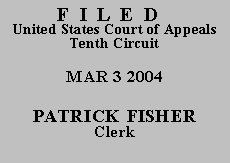

| ERVIN M. GRAVES,
vs.
STEVEN L. ANDRASCHKO |
|
The parties are familiar with the facts and we need not restate them here. See generally United States v. Graves, 47 M.J. 632, 634-35 (A. Ct. Crim. App. 1997). On appeal, Mr. Graves claims that (1) the construction of the relevant murder statute, 10 U.S.C. § 918, violates due process because it makes no meaningful distinction between premeditated and unpremeditated murder, though providing for different penalties for the two crimes; (2) the jury instructions failed adequately to distinguish the elements of premeditated murder from those of unpremeditated murder, and (3) the general court martial was without jurisdiction because the military judge was not a member in good standing of a state bar, but rather was an inactive member.
Our jurisdiction arises under 28 U.S.C. § 1291 and we affirm for substantially the reasons contained in the district court's memorandum and order. The judgment of the district court is
AFFIRMED.
Entered for the Court
Paul J. Kelly, Jr.
Circuit Judge
*. This order and judgment is not binding precedent, except under the doctrines of law of the case, res judicata, and collateral estoppel. This court generally disfavors the citation of orders and judgments; nevertheless, an order and judgment may be cited under the terms and conditions of 10th Cir. R. 36.3.
2. After examining the briefs and the appellate record, this three-judge panel has determined unanimously that oral argument would not be of material assistance in the determination of this appeal. See Fed. R. App. P. 34(a); 10th Cir. R. 34.1(G). The cause is therefore ordered submitted without oral argument.